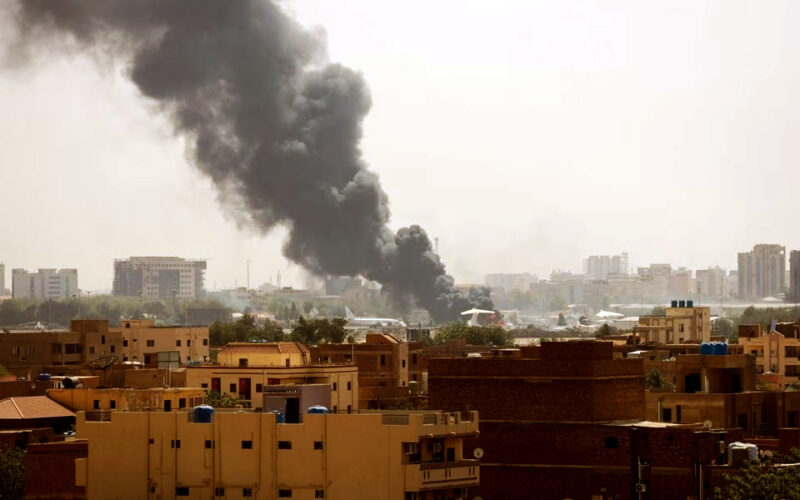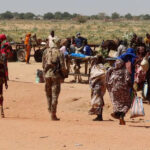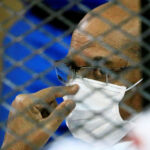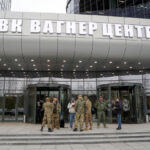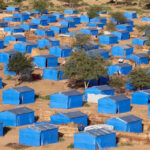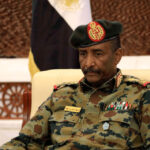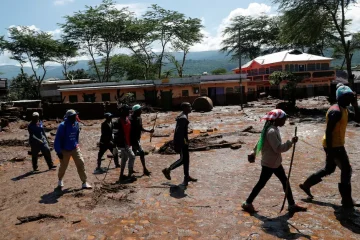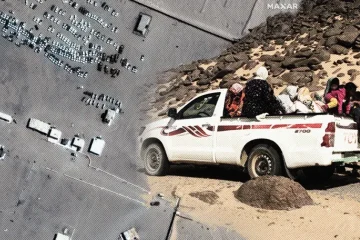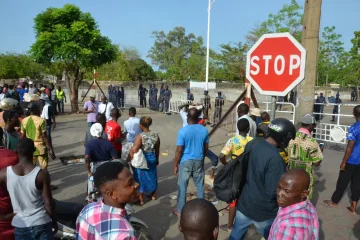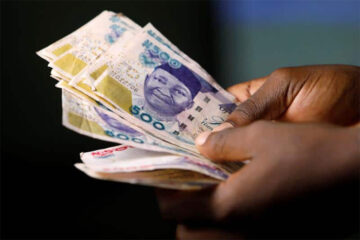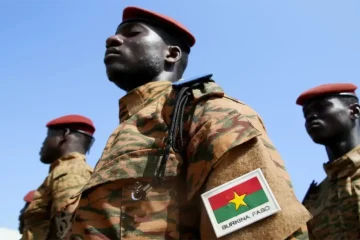KHALID ABDELAZIZ, NAFISA ELTAHIR and AIDAN LEWIS
ALARMED that movements of rival military factions in Sudan could bring bloodshed, a group of mediators pushed for last-ditch talks between army chief Abdel Fattah al-Burhan and paramilitary commander General Mohamed Hamdan Dagalo two weeks ago.
But neither of Sudan’s two most powerful men showed up to the meeting, convened at presidential offices in central Khartoum at 10 a.m. on April 15, three of the Sudanese mediators said, in details revealed for the first time here.
Instead, fighting was breaking out across the country.
At about 8.30 a.m. shooting started at the Soba military camp in the south of Khartoum, according to three eyewitnesses and an advisor within Dagalo’s paramilitary Rapid Support Forces (RSF).
Reuters could not establish who fired the first shot, but the violence escalated quickly across Africa’s third-largest country, an illustration of just how far the two sides had gone in the preceding weeks to prepare for all-out war.
Through interviews with nearly a dozen sources in the military, the RSF, officials and diplomats, Reuters has reconstructed several key events in the build-up to the violence, which has so far killed at least 512 people, prompted tens of thousands to flee and deepened the country’s already grave humanitarian crisis.
A week before the fighting, on April 8, Burhan and Dagalo, commonly known as Hemedti, met for the last time at a farm on the outskirts of Khartoum, a diplomat briefed on the meeting and two of the mediators said.
At the encounter, Burhan asked for the withdrawal of RSF forces from al-Fasher, a city in Hemedti’s stronghold of Darfur in Western Sudan, and a halt to the flows of RSF troops into Khartoum, which had been taking place for weeks.
Hemedti in turn asked that forces from Burhan’s close ally Egypt be withdrawn from an air base called Merowe, fearing they could be used against him, the two mediators and the diplomat said.
The men also spoke privately and appeared to agree to de-escalate, the two mediators said. But despite plans to talk again the next day, no more meetings took place.
Over the next week, behind the scenes, each was steadily preparing for the worst.
Burhan’s air force was studying where the RSF was gathered, using coordinates provided by the army, two military sources told Reuters, describing plans that have not previously been reported. The RSF, meanwhile, had been locating more and more gunmen at Soba and other camps across Khartoum, the same military sources said.
The air force, which has bombed positions in the capital since fighting erupted, studied the location of RSF camps for more than a week before the battles began, the two military sources said. The army also established a small committee of senior generals to prepare for a possible conflict with the RSF, the same sources said.
On Saturday, April 15, the first volleys of the war woke RSF troops stationed at Soba, Moussa Khadam Mohamed, an advisor to Hemedti, told Reuters in a telephone interview.
Looking beyond the walls of the camp, they saw the army had positioned cannons in the vicinity, he said.
“We observed a force gathering at the base,” as well as around Hemedti’s home in Khartoum, he said.
Both the army and the RSF were quick to blame the other publicly for sparking the violence and attempting a power grab.
Reuters could not independently verify the events Mohamed described. In response to written questions, a spokesman for the armed forces, Brigadier General Nabil Abdullah, said the army had been preparing to repel, not launch a war, in response to indications of an RSF attack.
He said the RSF had attacked first, taking many soldiers prisoner, and the army moved to repel the aggression. The army was conducting its campaign under its established chain of command, and the RSF had become a legitimate target for the air force after the fighting started, he added.
The offices of Hemedti and Burhan did not respond to requests for interviews.
A temporary truce this week was agreed under pressure from the United States and Saudi Arabia, who along with the United Nations and the African Union are concerned that Sudan could fragment, destabilising a volatile region.
The lull allowed thousands of Khartoum residents and foreign visitors to flee the capital. Although the truce was extended late on Thursday, air strikes and anti-aircraft fire again rocked the city.
RIVALRY AT THE TOP
Hemedti, previously a militia leader in Darfur, was an enforcer for former president Omar-al Bashir and became rich from the gold trade.
He and Burhan, a career army officer, were not always at odds.
Both commanded men in Darfur where as many as 300,000 people were killed and 2.7 million displaced in a conflict that escalated in 2003 and rumbles on to this day despite several peace deals.
Assuming the top two positions on Sudan’s ruling council after Bashir’s 2019 overthrow during a protest movement, they mostly presented a united front in a power-sharing arrangement with the Forces for Freedom and Change (FFC), a political coalition that arose from the uprising.
By that time, the RSF had grown into a force estimated at 100,000 and formalised under legislation passed by parliament
In October 2021, the two men staged a coup.
Hemedti, however, quickly came to see that takeover as a mistake that had enabled Bashir loyalists to regain some influence, he has said in speeches and televised interviews. The coup led to weekly mass street protests and cut short a tentative opening of Sudan’s stagnant economy.
As Hemedti bet on an internationally-backed framework agreement for a civilian government, apparently eyeing a future political role for himself, ties grew strained over the chain of command in the new transition and plans to integrate the RSF into the regular army.
In the buildup to the fighting, Hemedti insisted the integration of the RSF should be stretched over 10 years, in line with details of the framework transition plan signed in December, several Sudanese and diplomatic sources familiar with the talks said.
However, the army was pushing for a shorter time frame, with General Shams El Din Kabbashi, Burhan’s hardline deputy within the army, pushing for just two years.
Reuters could not reach Kabbashi for comment.
A senior diplomat involved in mediation efforts in the final weeks before the fighting said there seemed to be space for agreement between Burhan and Hemedti, though the RSF leader showed exasperation.
“There was a lot of rage, frustration, the narrative of ‘I’m the only one protecting the democratic transition'”.
The army chief was insisting that Hemedti would report to him, while Hemedti was saying that only an elected parliament could decide the chain of command. Neither wanted to back down first, the senior diplomat said.
DARFUR TO POWER
The RSF’s Mohamed, echoing comments made publicly by Hemedti, and the civilian FFC, both say there was a third group at play, souring relations between the army and the paramilitary force.
“There’s a bloc inside the army that rejects democracy,” Mohamed said, adding that RSF intelligence had monitored meetings of Bashir allies opposed to the transition.
Mohamed and the FFC say this bloc is made up of supporters, including Islamists, of Bashir, who ruled Sudan for decades. Pro-Bashir forces started making a comeback after the 2021 coup. They have publicly opposed the December framework agreement for elections and civilian rule.
“The agreement threatened the space that the elements of the defunct regime found after the October 25 (2021) coup, so they fuelled the conflict between the armed forces and the Rapid Support Forces and are now working to continue it after the outbreak of the war,” Khalid Omer Yousif, a senior FFC member and former cabinet minister, told Reuters.
FFC members have accused the pro-Bashir group of spreading rumours and exerting internal pressure within the army.
Representatives of Bashir’s National Congress Party did not respond to calls requesting comment for this story
Since his overthrow, Bashir has been in prison, with spells in hospital. He was convicted on corruption charges and is now being tried over the 1989 coup that brought him to power.
Before the outbreak of violence, Bashir was transferred from the sprawling Kober prison to a military hospital, the army said on Wednesday, along with five senior loyalists, including one who, like Bashir, is charged with war crimes by the International Criminal Court.
Days before the fighting broke out, Bashir sympathisers attacked pro-democracy groups near the prison. Last weekend, thousands of inmates were released in unclear circumstances.
Among them was a former minister in Bashir’s government who is also wanted on war crimes charges by the ICC, and other top members of his movement.
Mohamed Tahir Ayla, prime minister at the time Bashir fell and once touted as a potential future president, recently started making public appearances after keeping a low profile for several years.
At a gathering of supporters a few days before the fighting started, he brought an inflammatory message, promising “martyr after martyr” to defend Sudan’s land and religion.
Reuters could not reach Ayla or Bashir, or establish whether they have had any role in the collapse of the transition plan and the conflict.
“There is no place for the framework agreement,” Ayla said, in a video of the gathering viewed by Reuters. “We are more prepared now than before to take up arms, and take what is ours by our own hands”.

